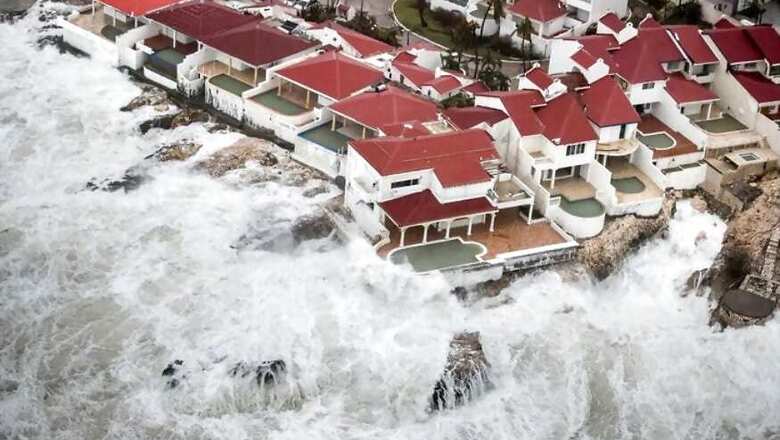
views
Washington: US President Donald Trump has signed a USD 15 billion hurricane relief package passed by Congress, one that also raises the debt ceiling and avoids a looming shutdown by funding government into early December.
Hours earlier the House of Representatives voted 316 to 90 to approve the package, which was the result of an agreement struck between Trump and congressional Democrats in a hurried effort to free up emergency funding after Hurricane Harvey swamped Texas, and as a second monster storm bears down on Florida.
The Senate easily passed the bill Thursday, 80 to 17. Trump signed the measure on Friday "providing much-needed support for storm survivors," White House spokeswoman Sarah Huckabee Sanders said on Twitter.
The bill extends US borrowing authority and funds the federal government until December 8 and frees up emergency relief funding just as Florida braces for a direct hit from Hurricane Irma, which has already been blamed for 17 deaths across the Caribbean.
Some Republican conservatives had strongly objected to the deal because they wanted a stand-alone hurricane relief bill unconnected to efforts to raise the federal borrowing limit and keep the government open.
All 90 House members against the measure were Republicans, including four from storm-ravaged Texas.
"Disaster assistance should be considered on its own – not to advance another agenda," Texas Republican Mac Thornberry said after voting against the package.
House Republican Sean Duffy called the deal "foolish," stressing Trump inadvertently handed Democrats substantial leverage ahead of fiscal debates in December, in large part because Republicans will be pressing ahead at that time with a tax reform bid.
Congress's immediate focus, however, was funnelling sufficient funding to government authorities like the Federal Emergency Management Administration, which has been helping victims of Hurricane Harvey that recently pummeled Texas, and is preparing for devastation in Florida.
House Republican Ileana Ros-Lehtinen, whose Florida district was bracing for a direct Irma impact, expressed her "heartfelt gratitude" to Congress for the aid.
Of the $15.25 billion in relief funding, about half is designated for FEMA's disaster relief fund.
FEMA has burned through much of its funding, due to the scope of Harvey and technical advancements that allow the agency to distribute money more quickly than in previous disasters.
Trump's homeland security advisor Tom Bossert said FEMA was operating at full tilt, "but there will be a break in their operations if they run out of money. That's why that supplemental legislation was so necessary."
With Harvey relief efforts expected to top USD 100 billion, lawmakers and officials agreed that the latest aid should be just a first step in broader federal assistance to come.
"Congress came and stepped up in a bipartisan way," Bossert told reporters at the White House.
"We're going to have to go back I'm sure for additional resources as these storms continue to hurt our states and our citizens," he added.
As Floridians prepared for the storm or evacuated, Trump assured that authorities were ready for Irma.
"It's a really bad one, but we are prepared at the highest level," Trump shouted to reporters as he boarded a helicopter for Camp David, the retreat in Maryland where he will hold a weekend cabinet meeting and monitor the storm.
The National Hurricane Center offered blunt warnings about the "extremely dangerous" storm.
"Irma is likely to make landfall in Florida as a dangerous major hurricane, and will bring life-threatening wind impacts to much of the state regardless of the exact track of the center."



















Comments
0 comment